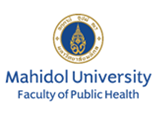[Event Report] Global Health Education Program (G-HEP) 2021-2022 — Global Health Academy Lecture 6: Migrant Health (July 14, 2021)
date : 7/30/2021
Tags: Global Health
![[Event Report] Global Health Education Program (G-HEP) 2021-2022 — Global Health Academy Lecture 6: Migrant Health (July 14, 2021)](https://hgpi.org/en/wp-content/uploads/sites/2/GHEP-06.jpg)
The Global Health Education Program (G-HEP) held its sixth lecture of the Global Health Academy on July 14th, welcoming the Deputy-Director General of the National Institute of Population and Social Security Research, Dr. Reiko Hayashi. Dr. Hayashi has conducted both national and international research on health and population, urbanization and population migration, and population and development. The lecture focused on the theme Migrant Health.
Dr. Hayashi began by explaining the concept and definitions of migrants and refugees. She then introduced trends relating to migration throughout the world. She also discussed developments in reducing disparities associated with migration in light of Goal 10 of the Sustainable Development Goals (SDGs). According to the United Nations Statistics Division (UNSD), Japan, where the number of immigrants is relatively low, has not met Goal 10.7.2, in particular in the areas of migrant’s socio-economic welfare and mobility dimensions of crises. On the other hand, Thailand has a very large number of migrants, especially refugees and stateless people, and has made considerable progress in its migration policies.
In the second half of the session, Dr. Hayashi spoke about various factors affecting the health status of migrants in Japan. One of these factors is access to health care which has been exasperated by the COVID-19 pandemic as more and more migrants lack access to care. In addition to the direct impact of the pandemic such as infections and deaths of vulnerable migrants, there are also serious indirect impacts such as unemployment and an overall lack of support.
The next lecture on Policy Recommendations and Advocacy will take place on August 11th.
■ Program Lectures
1) Thailand’s Health System and COVID-19 (complete)
2) Japan’s Health System and COVID-19 (complete)
3) Community Health (complete)
4) Health Technology (complete)
5) Global Health (complete)
6) Migrant Health (complete)
7) Policy Recommendations and Advocacy
8) Quantitative and Qualitative Research
The Global Health Education Program (G-HEP) is a joint program organized by the Health and Global Policy Institute and Mahidol University, Faculty of Public Health in Thailand.
■About Mahidol University
Mahidol University is the number one university in Thailand for medical education and the first public health academic institution in Thailand.
Vision:
Be a leader in promoting population health through being a health literate faculty in ASEAN countries by 2021.
Mission:
1. To offer an outcome based public health education through being a health literate faculty.
2. To be visible as a leader in public health education, integrative and innovative research, professional academic services on the basis of good governance to promote health and longevity and the betterment of mankind.
日本語
Top Research & Recommendations Posts
- [Announcement] A Turning Point Towards Building Green Healthcare Systems (June 5, 2024)
- [Policy Recommendations] Developing a National Health and Climate Strategy for Japan (June 26, 2024)
- [Publication Report] Guidance on Patient and Public Involvement (PPI) in Health Policymaking: Necessary Initiatives and Good Examples from the Public and Government (March 31, 2024)
- [Policy Recommendations] Obesity Control Promotion Project 2023 “The Next Steps for Engaging and Cooperating with Patients, Citizens, and Communities for Implements of Obesity Control Measurements” (April 8, 2024)
- [Research Report] Healthcare DX Project Research Report of Interviews ”Expectations for the Coming Era of Healthcare DX from People Living with Health Concerns” (June 10, 2024)
- [Research Report] Building a Mental Health Program for Children and Measuring its Effectiveness (June 16, 2022)
- [Announcement] A Significant Step Towards the Building a Green Healthcare System: Support for the Formal Expression of Interest by the Japanese Government Delegation to the ATACH at the Executive Board Meeting of the WHO (February 16, 2024)
- [Policy Recommendations] Recommendation for the Basic Policy on Economic and Fiscal Management and Reform 2024 (June 11, 2024)
- [Policy Recommendations] Patient and Public Involvement (PPI) Support Project “Promoting PPI in the Policymaking Process” (May 14, 2024)
- [Public Comment Submission] “The Fifth Fundamental Plan for Establishing a Sound Material-Cycle Society (Draft)” (May 22, 2024)
Featured Posts
-
2024-06-21
[Event Report] HGPI Special Seminar – HGPI Celebrates its 20th Anniversary: Reflecting on HGPI’s Journey from the Past to the Future (January 16, 2024)
![[Event Report] HGPI Special Seminar – HGPI Celebrates its 20th Anniversary: Reflecting on HGPI’s Journey from the Past to the Future (January 16, 2024)](https://hgpi.org/en/wp-content/uploads/sites/2/240116_HGPISeminar_eyecatch-1.png)
-
2024-06-25
[Public Comment Submission] Web based consultations on NCDs and mental health by World Health Organization (June 25, 2024)
![[Public Comment Submission] Web based consultations on NCDs and mental health by World Health Organization (June 25, 2024)](https://hgpi.org/en/wp-content/uploads/sites/2/ncd-ppi-ph-mh-20240625-top.png)
-
2024-06-26
[Policy Recommendations] Developing a National Health and Climate Strategy for Japan (June 26, 2024)
![[Policy Recommendations] Developing a National Health and Climate Strategy for Japan (June 26, 2024)](https://hgpi.org/en/wp-content/uploads/sites/2/NHCSJ_ENG.png)
-
2024-06-26
[Registration Open] (Webinar) The 127th HGPI Seminar: Current Issues and Future Prospects in Establishing a Health System and Protecting Public Health Through Policy (July 18, 2024)
![[Registration Open] (Webinar) The 127th HGPI Seminar: Current Issues and Future Prospects in Establishing a Health System and Protecting Public Health Through Policy (July 18, 2024)](https://hgpi.org/en/wp-content/uploads/sites/2/HGPI_20240718_127thHGPISeminar.png)
-
2024-07-01
[Registration Open] Meaningful Involvement Promotion Project Online Expert Meeting “Shaping the Future of Health Policy with People with Lived Experience and Citizens” (July 26, 2024)
![[Registration Open] Meaningful Involvement Promotion Project Online Expert Meeting “Shaping the Future of Health Policy with People with Lived Experience and Citizens” (July 26, 2024)](https://hgpi.org/en/wp-content/uploads/sites/2/HGPI_20240726_Shaping-the-Future-of-Health-Policy-with-People-with-Lived-Experience-and-Citizens.jpg)





